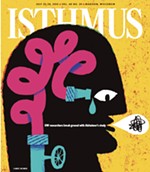Q&A with Bob Edwards
Q&A with Bob Edwards By David Medaris Bob Edwards
"Edward R. Murrow and the Birth of Broadcast Journalism"
Displaced this past spring as the former host of National Public Radio’s Morning Edition, Edwards has landed on his feet at XM Satellite Radio, where his own long-form radio show debuted last week. His biography of Murrow reminds us of the precedent-setting broadcaster’s innovations and legacy -- a legacy that, Edwards contends in his book’s tart afterword, has all but been abandoned by contemporary broadast journalists.
David Medaris: Considering the rigorous schedule you keep as host of your eponymous XM Public Radio show (and, previously, as host of National Public Radio’s Morning Edition), how did you find the time and perseverance to research and write Edward R. Murrow and the Birth of Broadcast Journalism?
Bob Edwards: I wrote my book during afternoons (I used to have office hours from 2 AM til noon -- afternoons were free) and on weekends.
Q: What was the genesis or impulse for Edward R. Murrow and the Birth of Broadcast Journalism?
A: I was asked by Hana Lane of John Wiley & Sons to be one of the authors in Wiley's "Turning Points" series. I got to pick my subject and I chose Murrow -- with the turning point being his role in establishing radio (and later TV) as a news medium.
Q: Who should read Edward R. Murrow, and why should they read it?
A: Everyone who cares about journalism should read my book and learn that broadcast journalism began with professionals who had the highest standards -- it wasn't always about crime, gossip and celebrities.
Q: When and how did you first learn of Murrow?
A: I listened to Murrow on radio and saw him on TV as a child in the 1950's. His legacy has affected my work enormously and inspired me to want to work in this field and champion his principles.
Q: If you owned a bookstore, where would you display Edward R. Murrow and the Birth of Broadcast Journalism -- in the Biography section? Media Analysis? Criticism?
A: My book belongs in "Biography" but it would not be misplaced in "History."
Q: Amazon shoppers who have bought Edward R. Murrow and the Birth of Broadcast Journalism have also bought Charles Osgood’s Defending Baltimore Against Enemy Attack; Mark Bernstein’s book on Murrow’s World War II broadcasts, World War II on the Air; Naked in Baghdad, by Anne Garrels; and Founding Mothers: The Women Who Raised Our Nation, by Cokie Roberts. What do you infer from this?
A: The Amazon couplings make sense -- books related to Murrow and CBS -- plus books by other NPR personalities.
Q: The publication date for Edward R. Murrow and the Birth of Broadcast Journalism fell awful darn close to your departure from Morning Edition. If Murrow had been around to report on your state of mind this past April and May, what would his script have looked like?
A: It's hard to believe that, were he still active, Murrow would have written about my situation of last Spring. But then David Broder, Linda Ellerbe and some other great journalists of today did so.
Q: What do you imagine Murrow would think of the XM show you now host?
A: It's not immodest of me to say that Murrow would like my XM program. My guests are fascinating people and Murrow would also be trying to interview the same folks. He loved long-form interviews and was very good at them.
Q: If Murrow was still alive and accepted an invitation to appear on your XM Public Radio show, what would be the first three questions you would ask him?
A: Questions I would ask Murrow if I could:
1) Did you witness any atrocities committed by Allied troops in World War II? Did military censors prevent you from reporting them? If so, why did you let that stop you?
2) You took a courageous personal stand on civil rights as a national student leader in 1930, yet you did few "See It Now" programs on civil rights -- few beyond the obligatory ones (Brown v. Board, Little Rock, etc.). Why did you never interview Martin Luther King, Thurgood Marshall, A. Philip Randolph or some of the other giants of civil rights in the 1950's?
3) CBS killed a broadcast you did from Korea in 1950. Why didn't you quit immediately and jump to NBC? NBC had always told you that you could write your own NBC contract if you jumped ship -- so why couldn't that agreement have included a "no censorship" clause?
[RULE]
David Medaris is a staff writer at Isthmus, the Madison, Wis., alternative newsweekly.

